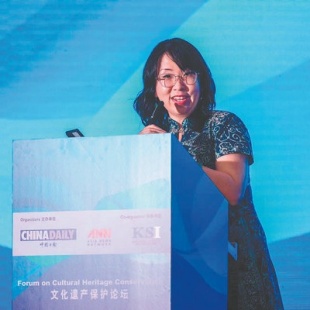Malaysia seeks cooperation, exchange on shared practices

Noting that Asian countries have prioritized the protection of cultural heritage and carried out a series of meaningful exchanges and cooperation, Yeo cited successful stories from Malaysia, such as its joint nomination of the folk custom Wangchuan ceremony with China, and Pantun, a form of Malay verse used to express intricate ideas and emotions.
According to the UNESCO lists, the Wangchuan ceremony and related practices are rooted in folk customs of worshipping. Developed in China's Minnan (southern Fujian province) region between the 15th and 17th centuries, it is now centered in the coastal areas of Xiamen Bay and Quanzhou Bay in Fujian, as well as in the Chinese communities in Melaka, Malaysia.
Malaysia is also working with Indonesia, Singapore, Brunei and Thailand on the joint nomination of the Kebaya, a traditional Southeast Asian garment, for the UNESCO Intangible Cultural Heritage Lists, which is expected to be completed in December, Yeo said.
Yeo said Malaysia's diversity with people of different races and cultures has made the country what it is today through harmonious coexistence.
Yeo said Malaysia is preparing to be a member of the Alliance for Cultural Heritage in Asia to further cooperation with regional countries on cultural heritage protection.
Established in 2023, the Alliance for Cultural Heritage in Asia, initiated by China, is the first international cooperation mechanism in Asia to protect cultural heritage, the carrier of civilization.





































